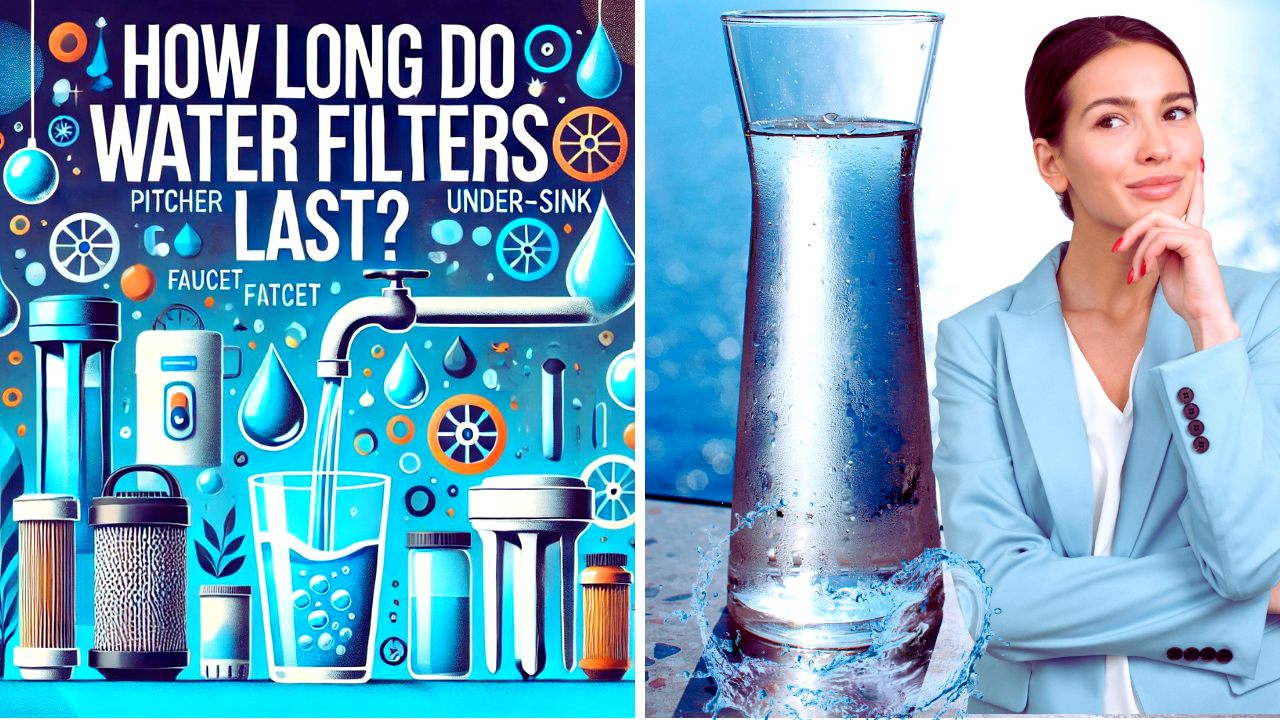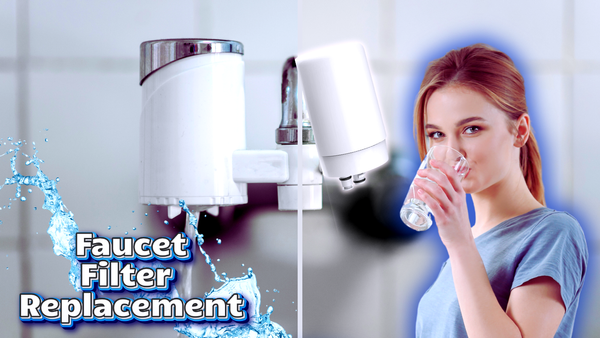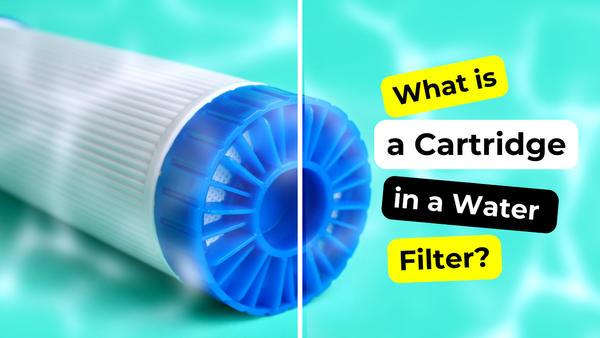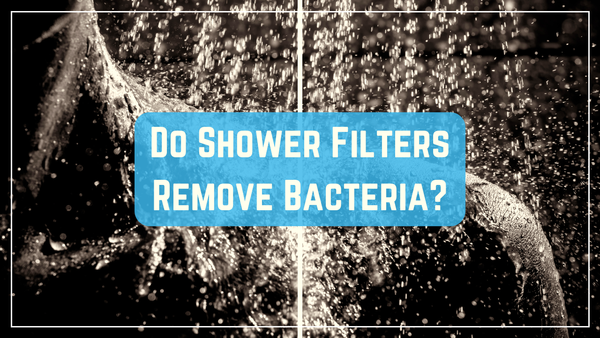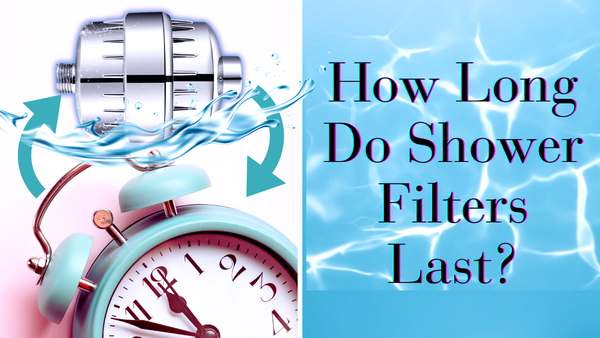Key Takeaways:
- Water filters typically last 2 to 6 months, depending on usage and water quality.
- Regular maintenance and timely replacement are crucial for effective filtration.
- Different types of filters have varying lifespans and replacement schedules.
Water filters are essential for ensuring clean and safe drinking water. They remove contaminants and improve the taste and odor of water. But how long do water filters last? The lifespan of a water filter depends on several factors, including the type of filter, water quality, and usage.
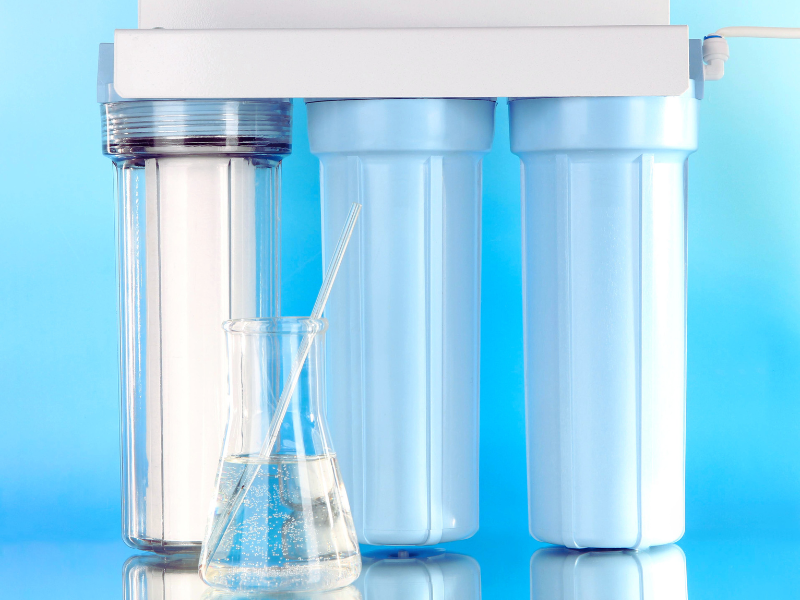
Factors Affecting Filter Lifespan
The lifespan of your water filter depends on several factors. First, the quality of your water matters a lot. Your filter won't last as long if tap water has lead, bacteria, or volatile organic compounds. You might need to change it more often. Testing your water to see when to change the filter is a good idea.
Second, how much water you use also matters. If you use a lot of water at home, your filter will wear out faster. Monitoring your water use can help you know when it’s time to replace the filter.
Signs It's Time to Replace Your Filter

Here are signs that tell you when it's time to replace your water filter: if your water starts to taste bad or smell funny, the filter might not be cleaning out the bad stuff anymore. Another sign is if the water flow slows down a lot; this happens because the filter gets filled up with everything it's supposed to clean out of the water. Changing the filter when you notice these things can fix these problems and ensure your water stays clean and tastes as good as it should.
Manufacturer's Guidelines
Manufacturers provide guidelines for replacing filters based on how much you use them and your water quality. Following these recommendations ensures your filter works effectively to provide clean water. Additionally, regular maintenance, like cleaning and inspecting your water filtration system, helps extend the life of your filters. By keeping your system in good shape, you maintain water quality and avoid premature filter replacements, saving you time and money.
Different Types of Filtration Systems
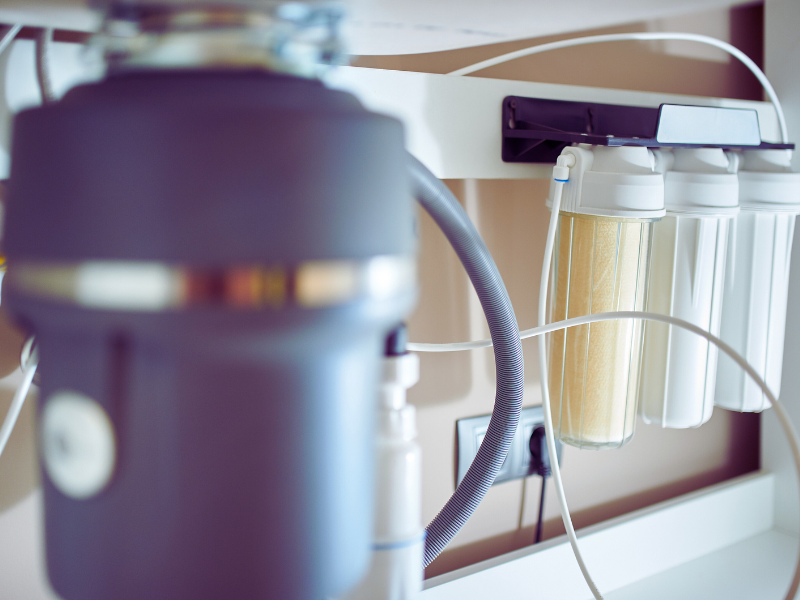
Whole House Water Filters
Whole house water filter treats all the water entering your home. Whole house water filters are effective at removing a wide range of contaminants, including volatile organic compounds. A whole house system typically includes components like sediment filters, activated carbon filters, and post-filters, and regular maintenance is crucial for better water quality. These systems typically have multiple stages of filtration, including sediment filters, activated carbon filters, and post-filters. The lifespan of each filter varies, but regular maintenance ensures the system continues to provide clean water.
Under Sink Water Filters
Water filters are installed directly under your kitchen sink. These systems provide filtered water for drinking and cooking and are effective at removing a wide range of contaminants, including volatile organic compounds. The lifespan of an under-sink water filter depends on several factors, including the technology used, water usage patterns, and the quality of the water supply. The filters in these systems usually last between 6 and 12 months, depending on usage and water quality.
Reverse Osmosis Systems
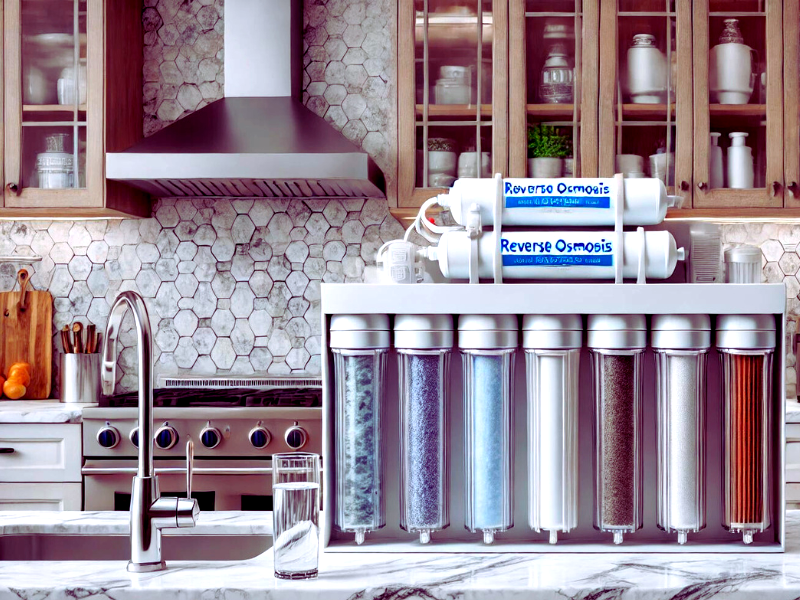
Reverse osmosis systems use a semi-permeable membrane to remove contaminants from water. These systems are highly effective at removing a wide range of contaminants, including volatile organic compounds, heavy metals, and other particles. The filters in reverse osmosis systems typically need to be replaced every 6 to 12 months.
Regular maintenance of reverse osmosis systems is crucial for their performance. This includes replacing pre-filters, post-filters, and the membrane according to the manufacturer's guidelines. Proper maintenance ensures the system continues to provide clean and safe drinking water.
Activated Carbon Filters
Activated carbon filters are effective at removing chlorine, VOCs, and other contaminants. They improve the taste and odor of water, making it more pleasant to drink. Using filtered refrigerator water not only enhances taste but also reduces reliance on plastic water bottles, offering environmental and cost benefits. These filters are commonly used in both whole-house systems and under-sink filters.
The lifespan of activated carbon filters varies depending on usage and water quality. On average, these filters need to be replaced every 2 to 6 months. Regular replacement ensures the filter continues to effectively remove contaminants.
Importance of Regular Replacement
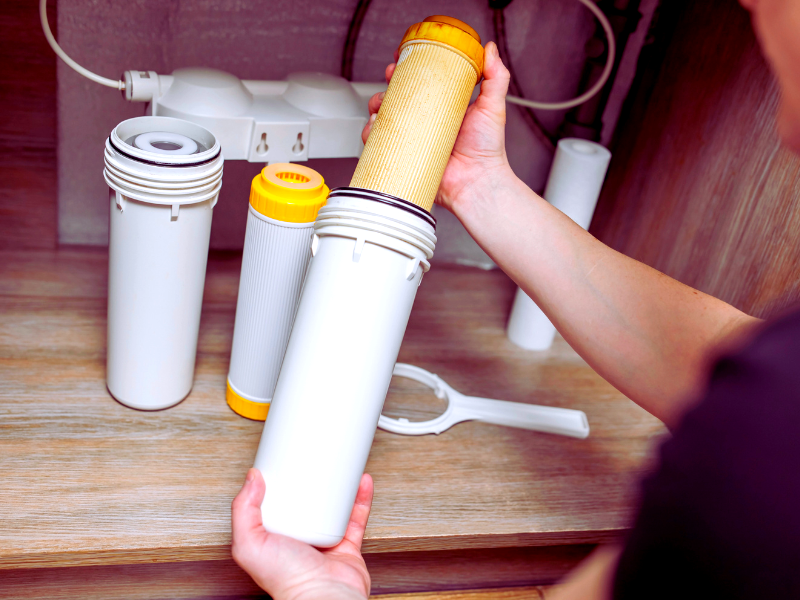
Regularly replacing your water filters is essential for ensuring clean and safe drinking water. Regular replacement ensures that the filter continues to effectively remove contaminants, including volatile organic compounds. Maintaining a house water filter by replacing the filtration media at regular intervals is crucial for optimal performance. Over time, filters become clogged with contaminants and lose their effectiveness. Timely replacement ensures that your water remains free of harmful substances.
Using clean water also protects your appliances, such as ice makers and water dispensers. Contaminants in the water can cause damage to these appliances, leading to costly repairs or replacements. Regular filter replacement helps maintain the longevity of your appliances.
How to Replace Your Water Filter
Replacing your water filter dispenser is a straightforward process. First, turn off the water supply to the filter. Next, remove the old filter and install the new one according to the manufacturer's instructions. Finally, turn the water supply back on and check for any leaks.
When replacing your water filter, following the manufacturer's guidelines is important. This ensures that the new filter is installed correctly and functions properly. Additionally, keeping a record of your filter replacement schedule can help you stay on track with regular maintenance.
Common Mistakes to Avoid
One common mistake is ignoring the recommended replacement schedule. Over time, filters become less effective at removing contaminants. Sticking to the replacement schedule ensures that your water remains clean and safe. Another mistake is using the wrong filter for your system. Different systems require specific filters, and using the wrong one can compromise water quality. Always check the manufacturer's guidelines to ensure you're using the correct filter.
Benefits of Clean Water

Clean water is essential for good health. Regular replacement ensures that the filter effectively removes contaminants, including volatile organic compounds. It helps maintain hydration, supports digestion, and promotes overall well-being. Regularly replacing your water filters ensures your water is free of harmful contaminants. Filtered water tastes and smells better than unfiltered water. Removing chlorine, VOCs, and other contaminants improves the overall quality of the water, making it more enjoyable to drink and use for cooking.
Summary
Water filters are crucial for providing clean and safe drinking water. Regular maintenance and replacement of different water filtration systems, including under-sink and refrigerator water filters, are essential for maintaining high-quality water. The lifespan of a water filter depends on several factors, including the type of filter, water quality, and usage. Regular maintenance and timely replacement are essential for ensuring that your filter continues to remove contaminants effectively. Regular replacement ensures that the filter continues to remove contaminants, including volatile organic compounds, effectively. By following the manufacturer’s guidelines and monitoring your water quality, you can ensure your water remains clean and safe.
FAQ
How often should I replace my refrigerator water filter?
The fridge water filter should typically be replaced every six months. However, the lifespan can vary based on water quality and usage. If you notice a change in the taste or odor of your water, it might be time to replace the filter.
What are the signs that my water filter needs to be replaced?
Common signs that your water filter needs to be replaced include a change in the taste or odor of your water and reduced water flow. If you notice any of these signs, it's time to replace your filter.
Can I extend the life of my water filter?
Regular maintenance, such as cleaning and inspecting your water filtration system, can help extend the life of your filters. However, it's important to follow the manufacturer's guidelines for replacement to ensure optimal performance.
